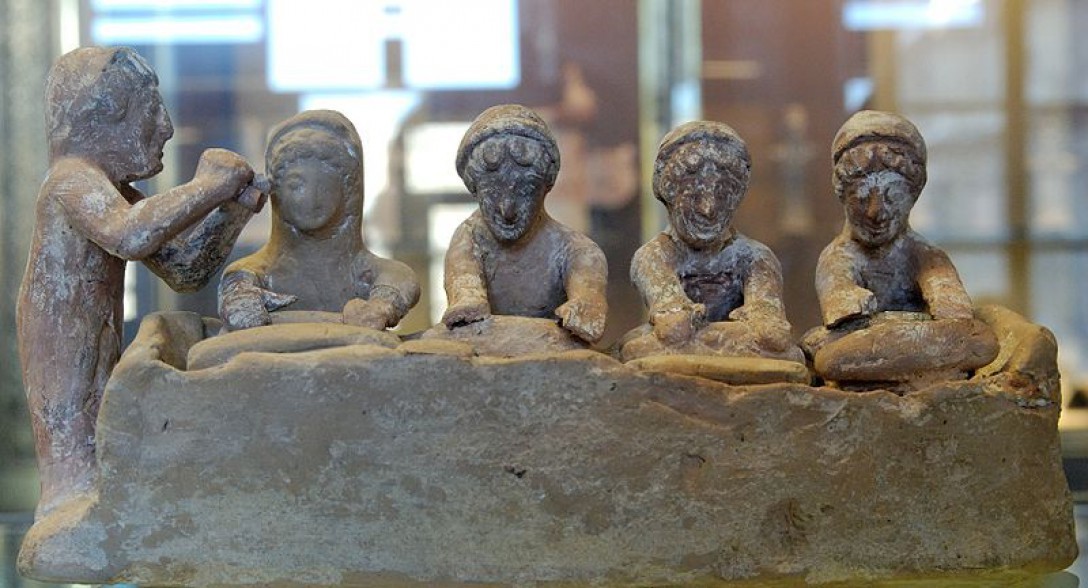…Persefone left the thick gloom of Hades to go up to the plains of her beloved land, blessing the earth with life.
May…
Zafiris,* a young boy, lies down pretending to be dead and the girls adorn him with flowers and leaves singing mourning songs. Before the last verse the boy raises…
….ressurection,
Adonis, Attis, Dionysus are still here….
May…
May day on Corfu: attributed to Charalambos Pachis
A large branch of cypress, wraped with flowers, bells and ribbons is carried in procession, accompanied with music and songs….
…. tree worship.
May, the month of analogic magic…

The photo is from Kathimerini
To dispel the cruel winter and conjure up a good harvest year, a young man, Piperos (Pepper man), is clad in ferns and flowers. On each side of him marches a child, the little pepper, with a flower garland on the head. A farmer holding a hoe and many young girls follow them singing: ” Pepper, pepper, pepper and sweet rose go quickly to st. Elias and st. Elias go to the heaven, for God will pour water upon the wheat, upon the barley and poor man’s seeds. From each wheat spike~ a plate and a sheaf. Furrows, furrows filled with water, basins, basins filled with wine, farmer with hoe”.
They stop at every house where they receive money, eggs and sweets; and the people souse the leaf-clad boy with water while the farmer is symbolically digging the soil.**
May …
…picking flowers and pickinicking, the sine quibus non of the Greek Protomayia. Wreaths of fresh wild flowers are hung on the front doors until the bonfires of Saint John’s eve. A garlic and a thorn between the fragrant blossoms avert the evil eye and the powers of witchcraft.
May…
…the good month (kalominas), the flowery (louloudos), rosy month (triantafillias).
May….
….the month of revolution.
*Epirus.
** Evoia.




Cynthia, Greek paganism has been propagated -unconsciously- by the peasant masses, thus many pagan customs and habits have survived into our own time.
Mariana,
Wonderful post! I really love to find out about the pagan/ancient (more accurate word that, “ancient”) roots of many of our customs. Thanks for sharing.
Ι like her a lot, too. 🙂
I’ve never heard this song before. So interesting and I really like Savina Giannatou too.
Καλό μήνα Μαριάνα!
Magda